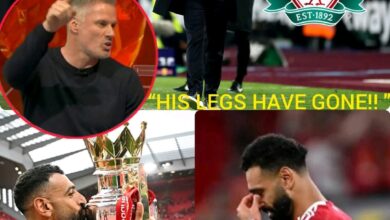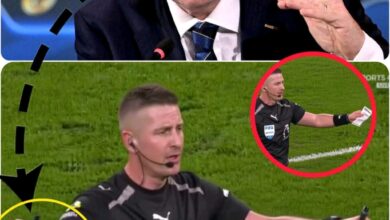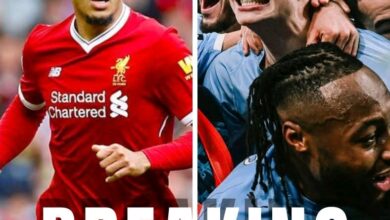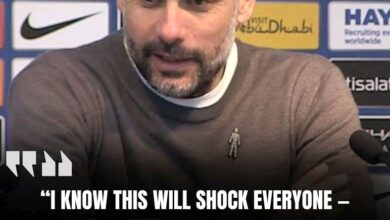Tottenham vs Manchester United player rating , unbelievable player 👏 😳
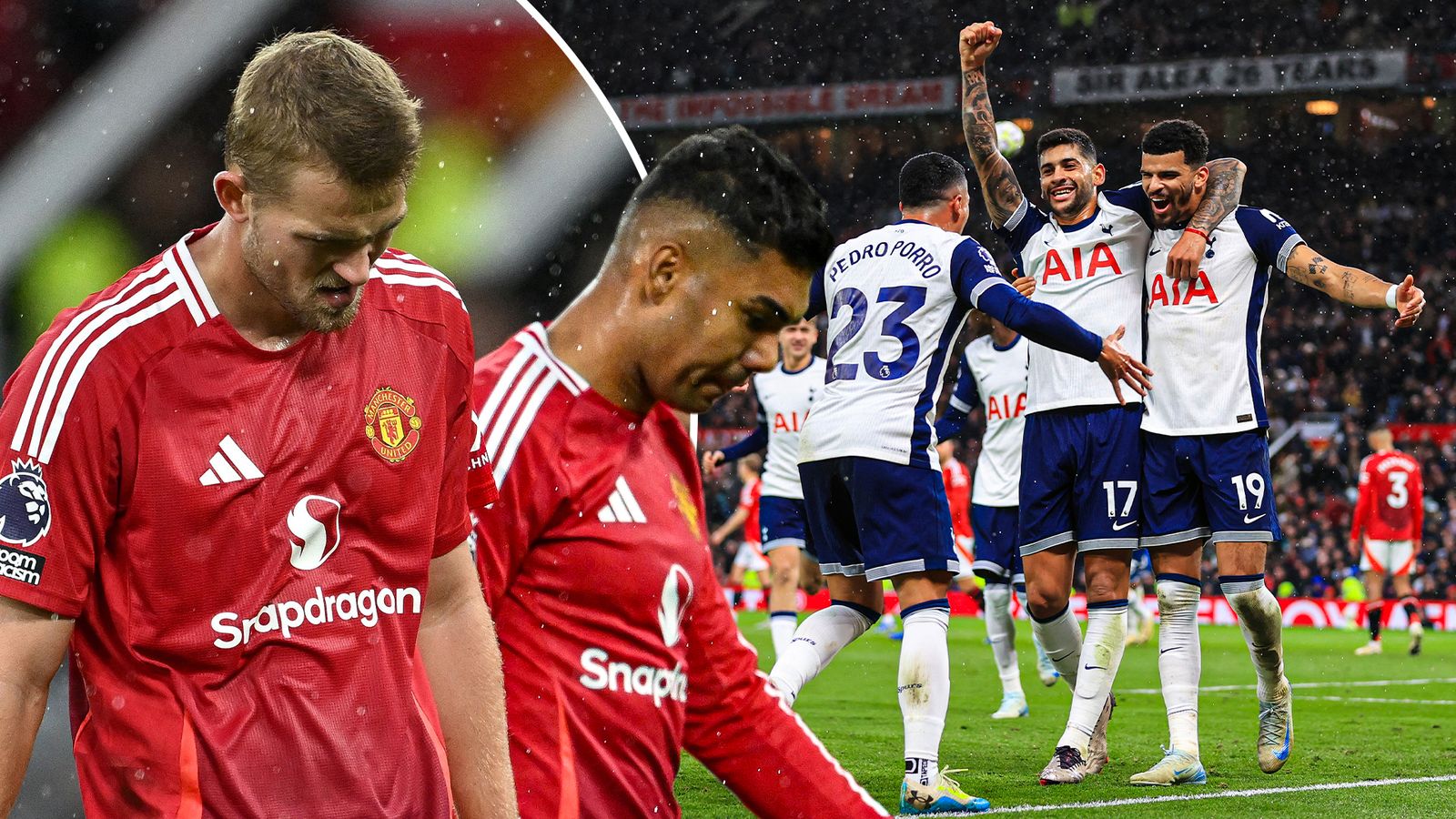
The Premier League had one of the most tense and exciting encounters this weekend as Tottenham Hotspur faced Manchester United in a clash that promised fireworks and delivered every bit of drama. The full-time whistle had barely blown, yet fans were left talking about every single moment, every tackle, every pass, and every shot. It was one of those games that reminded you why football is more than just a sport; it is theatre, it is passion, it is heartbreak and joy wrapped together in 90 minutes of pure emotion. Tottenham, under Thomas Frank, welcomed Manchester United to their home stadium, a venue that has often witnessed unforgettable Premier League encounters. The stakes were high, the atmosphere electric, and both sides knew that every point, every goal, and every mistake could define their season.
Tottenham started the game with a sense of purpose, but Manchester United were equally determined. The visitors had been on a rollercoaster season, with moments of brilliance followed by periods of struggle. They came into the match needing points to maintain momentum in the league, while Spurs were looking to assert themselves at home and send a message to the rest of the division that their attacking unit could punish anyone. From the first whistle, it was clear that both teams were not there to make up the numbers. The opening minutes saw both sides feeling each other out, with Tottenham trying to assert control through the midfield while United looked dangerous on the counter. The tension was palpable, and fans in the stadium could feel it in their bones, every pass and every challenge resonating like a drumbeat of anticipation.
Guglielmo Vicario, Tottenham’s number one, started the match with the weight of expectation on his shoulders. It did not take long for United to test him. Mbeumo, making one of his characteristic runs into the box, connected with a perfectly timed header at the back post, giving United an early lead. Vicario was beaten by the precision of the finish, and although he had little chance to stop it, the goal highlighted the first key talking point of the match: Spurs’ vulnerability to crosses from wide positions. Vicario would have to rally his confidence immediately because this game demanded concentration for every second, and any lapse could prove costly. His reaction after the goal, though, showed resilience. He directed his defenders, organized the backline, and made himself ready for the challenges that were sure to come.
Pedro Porro, starting on the right flank, had a night to forget. His defensive positioning came under immediate scrutiny as he failed to mark Mbeumo for United’s opener. It was one of those moments where a single mistake can define a performance, and unfortunately for Porro, it set the tone for his night. His attacking contributions were equally disappointing; crosses from open play lacked accuracy, and his delivery on set pieces was far below what Tottenham had come to expect from him. Thomas Frank made the decision to substitute him at halftime, a clear indication that Spurs needed a spark in the right-back position to change the dynamics of the game. Porro’s frustration was visible, a reminder that in the Premier League, one bad performance can feel magnified, especially when it comes against a top club like Manchester United.
Cristian Romero, the captain, had a quieter first half as most of United’s attacks came from the wings, leaving him with relatively little to do centrally. However, in the second half, as Spurs pressed for an equaliser, Romero’s influence grew. He met a cross from Wilson Odobert and forced Tottenham’s first shot on target, showing that the captain’s leadership and aerial prowess were still vital for the team. Unfortunately, Romero picked up a knock later in the game, and Frank had to make an early substitution, bringing Kevin Danso into the heart of defense. It was a tactical shift but also a necessary one, as Romero’s experience and presence had been central to Spurs’ defensive organization. The injury was a blow, but Danso’s entry gave the team fresh energy and a renewed sense of urgency at the back.
Micky Van de Ven, alongside R and Danso, had another solid display. While Tottenham’s corner deliveries were disappointing, Van de Ven’s defensive positioning and timely tackles ensured that United’s forwards were kept at bay for most of the match. One crucial moment stood out when he denied Sesko a near-certain goal immediately after Spurs had equalized. His recovery tackle was not just about stopping a goal; it was about maintaining the team’s belief, signaling that Spurs would fight until the very end. Van de Ven’s consistency in defense often goes unnoticed, but in matches like these, the importance of a dependable defender cannot be overstated. Every interception, every clearance, every block contributes to the collective confidence of the team, and Van de Ven provided that in abundance.
Djed Spence, operating on the flanks, had a mixed night. Early on, he failed to put pressure on Amad Diallo’s cross, allowing United to take advantage and score the opening goal. It was one of those moments where a single lapse in concentration can have immediate consequences. In the second half, Frank moved him from the left to the right in an attempt to spark some attacking movement, but Spurs’ offensive play still lacked cohesion. Spence tried to make an impact, but the team as a whole struggled to find rhythm in wide areas. Nevertheless, his effort and willingness to adapt to different positions showed a team-first mentality, something Frank would have valued highly as he looked for solutions to unlock United’s defense
Joao Palhinha, the Portuguese midfielder, provided solidity in the middle of the park. In the first half, he won crucial ground and aerial duels, showing his ability to break up play and maintain Spurs’ defensive structure. In the second half, he ventured further forward, creating a chance that forced a fine save from United’s goalkeeper, Lammens. Palhinha’s ability to transition between defensive duties and offensive support is one of his defining qualities, and in a match of this magnitude, his presence helped Spurs remain competitive. His leadership in the midfield, combined with tactical awareness, ensured that Tottenham were never completely out of the game, even when United had the upper hand in the early stages.
Pape Sarr, the Senegalese midfielder, attempted to contribute at both ends. Early in the match, he tracked back to block Cunha’s strike, demonstrating his defensive commitment. Going forward, he tried to influence Spurs’ attacking play but lacked the intensity and decisiveness needed to truly impact the game. His performance was a reminder that football is not just about skill but also about timing, awareness, and the ability to seize opportunities. Sarr showed glimpses of potential, but in a match against a top opponent like Manchester United, those glimpses need to be translated into consistent influence on the pitch.
Xavi Simons, the Dutch midfielder, had flashes of brilliance. In the first half, when Spurs transitioned from defense to attack, he showcased his vision and technical ability. However, as the game progressed, his influence waned. Spurs struggled to maintain possession, and Simons found himself with fewer opportunities to impact play. It was a frustrating night for him, as moments of quality were often overshadowed by the team’s overall struggles in creating coherent attacking patterns. Yet, when he did have the ball, his creativity offered hope that Tottenham could still find a way back into the game.
Brennan Johnson’s performance mirrored the inconsistency of Tottenham’s attack. He had bright moments in the first half, such as a floated ball that narrowly missed Richarlison, but at times he struggled to maintain control. In the second half, he scored from an offside position, a moment that perfectly summed up Spurs’ attacking difficulties — flashes of quality overshadowed by errors or misfortune. Johnson’s night was a reminder that attacking football requires not just skill but timing, precision, and an understanding of the game’s nuances. Despite the setbacks, his willingness to take risks and create chances was notable, reflecting his commitment to the team’s offensive ambitions.
Richarlison, despite scoring a goal, had a below-par performance overall. The Brazilian forward struggled to influence the game consistently. His decision-making in the final third was often poor, and his hold-up play lacked the necessary sharpness. Yet, he managed to score what seemed like the winning goal until De Ligt’s late equalizer. Goals often mask underlying issues in performance, and Richarlison’s night was a perfect example. He did enough to keep Spurs in contention, but his overall contribution highlighted areas for improvement, especially in terms of consistency and impact in key moments.
Randal Kolo Muani was largely ineffective in the first half, chasing shadows and unable to impose himself on the game. Thomas Frank made the tactical decision to substitute him, bringing on Wilson Odobert to inject energy and creativity into Spurs’ attacking play. Odobert, with his youthful exuberance and technical ability, immediately made a difference. He created a clear chance with a cross that Romero met, though the effort was straight at the goalkeeper. His movement and vision were crucial in Spurs’ late resurgence, showing that a well-timed substitution can change the narrative of a match entirely.
Destiny Udogie replaced Porro and made an instant impact. Linking up with Odobert on the left, he delivered a cross that Mathys Tel would convert brilliantly. Udogie’s understanding of space, timing, and collaboration with teammates was a key factor in Spurs’ ability to fight back from a goal down. His contribution was not just about the assist; it was about the intelligence and composure to exploit weaknesses in United’s defense at a critical juncture in the game.
Mathys Tel, the young French sensation, was the star of the show. Replacing Xavi Simons, Tel’s introduction changed the dynamics of the match. With his first shot on target, he scored a brilliant goal to pull Tottenham level, controlling Udogie’s low-driven cross before turning and firing into the net. It was a goal that showcased his technical ability, composure under pressure, and understanding of timing and positioning. Tel’s impact went beyond the goal itself; his presence injected belief, energy, and a sense of inevitability that Spurs could challenge United until the very last minute. In a game where margins were fine and every action counted, Tel’s performance reminded everyone why he is considered one of the brightest young talents in Europe.
Kevin Danso, coming in for the injured Romero, ensured that Spurs maintained defensive solidity in the final moments. His calmness under pressure, ability to read the game, and timing of tackles contributed significantly to Spurs holding on for a point. Danso’s presence emphasized the importance of squad depth and readiness, showing that substitutions are not just tactical but can be pivotal in influencing the outcome of matches.
The final whistle confirmed a 2-2 draw, but the match was much more than the scoreline. Tottenham displayed resilience, tactical adaptability, and flashes of brilliance, particularly through their substitutes, who changed the game when it mattered most. Manchester United, despite leading at different stages, were unable to secure victory, highlighting both the strengths and weaknesses of their current squad. The match was a reminder of the Premier League’s unpredictability, where no lead is safe, and no result is guaranteed until the very last second.
Beyond individual performances, the game had broader implications for Tottenham’s season. The ability to come back from behind, the tactical flexibility shown by Thomas Frank, and the emergence of players like Mathys Tel and Wilson Odobert all point to a team capable of challenging at higher levels. The blend of youth and experience, risk-taking and calculated play, shows Spurs’ intent to be a force not just in domestic competitions but in European arenas as well.
For Manchester United, the match served as a wake-up call. Early lapses, reliance on wide areas, and the inability to hold leads underscore areas requiring urgent attention. Players like Mbeumo and Diallo proved decisive in exploiting space, while United’s defensive cohesion needs work to cope with teams that adapt quickly and make strategic substitutions. Lessons from this game will influence training, tactical planning, and potentially transfer market activity, as the club seeks to balance creativity with defensive stability.
In conclusion, Tottenham’s 2-2 draw with Manchester United was a match filled with drama, lessons, and moments of brilliance. Guglielmo Vicario, Micky Van de Ven, and Joao Palhinha provided defensive stability; Mathys Tel and Wilson Odobert offered attacking inspiration; while the team collectively showed the resilience and adaptability needed in modern Premier League football. For Thomas Frank, this match would be remembered not just for the result but for the tactical decisions that showcased his ability to manage pressure, utilize his squad effectively, and harness the potential of his young talents. For the fans, it was a rollercoaster of emotions, a reminder of football’s beauty, unpredictability, and the moments of magic that make it the world’s most beloved sport






